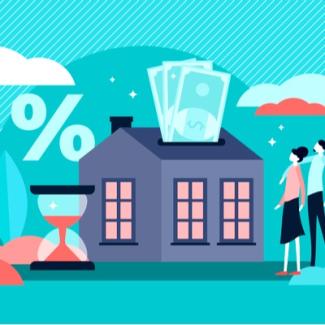
Should You Refinance Your Mortgage?
One of the most far-reaching economic consequences of the COVID-19 pandemic (and the Federal Reserve’s intervention) is ultra-low interest rates. For example, the yield-to-maturity on the ten-year Treasury note is a stunning 0.65% as of 8/24/20.
While rock-bottom interest rates are harmful to long-term investors, they can be a boon for borrowers, especially mortgagors. Some of us may remember the old rule-of-thumb to refinance when the new mortgage interest rate is lower by at least two percentage points. In today’s world, we have situations where the difference is a fraction of a percent, yet it makes sense to refinance.
We recently performed an analysis of an opportunity to refinance at a cost of $3,500 that would lower the monthly payment by $700 but extend the maturity date by four years. We found that there was only a marginal benefit to refinancing, assuming that only the required monthly payments were made. Also, since the homeowner would likely be retired during those final four years, the offered deal was not compelling. However, if the homeowner were to refinance but continue paying the original required amount, the mortgage would be paid off two years earlier than the original mortgage, saving about $130,000. Comparing this savings to the $3,500 cost over a 25-year period would yield an annualized return of over 15%! Good luck finding that anywhere in the financial markets. Of course, the outcome could be further improved by investing the excess $700 at a higher post-tax return than the mortgage interest rate, but there is certainly no guarantee of that happening.
As you may have surmised from the example above, an important consideration in refinancing is the term length of the new mortgage. Normally, it should not extend beyond the mortgagor’s retirement date, but there are valid exceptions based on the mortgagor’s financial situation. Furthermore, prepayments may be utilized to shorten the term, assuming there is no penalty.
You probably don’t need us to remind you that just because you see an ad with an enticing interest rate, it does not mean that the lender will make that rate available to you. Also, the cost of refinancing may be higher than you anticipate, especially with the 0.5% refinance fee recently announced by Fannie Mae and Freddie Mac.
Point of trivia: the word “mortgage” literally means dead pledge from Old French (i.e., sign your life away). If we can be of assistance to you in evaluating different refinancing options (including whether to pay points to get a lower rate), please do not hesitate to reach out to us at advisors@clarityca.com.

